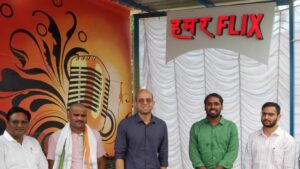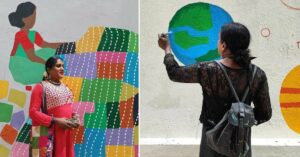Musicians Across India Rely On This Kerala Family’s 200-YO Legacy Of Mridangams
In Kerala's Peruvemba village, one family has been making the Mridangam, a Carnatic instrument, for four generations. They make two types of Mridangams - Ech and Thag.
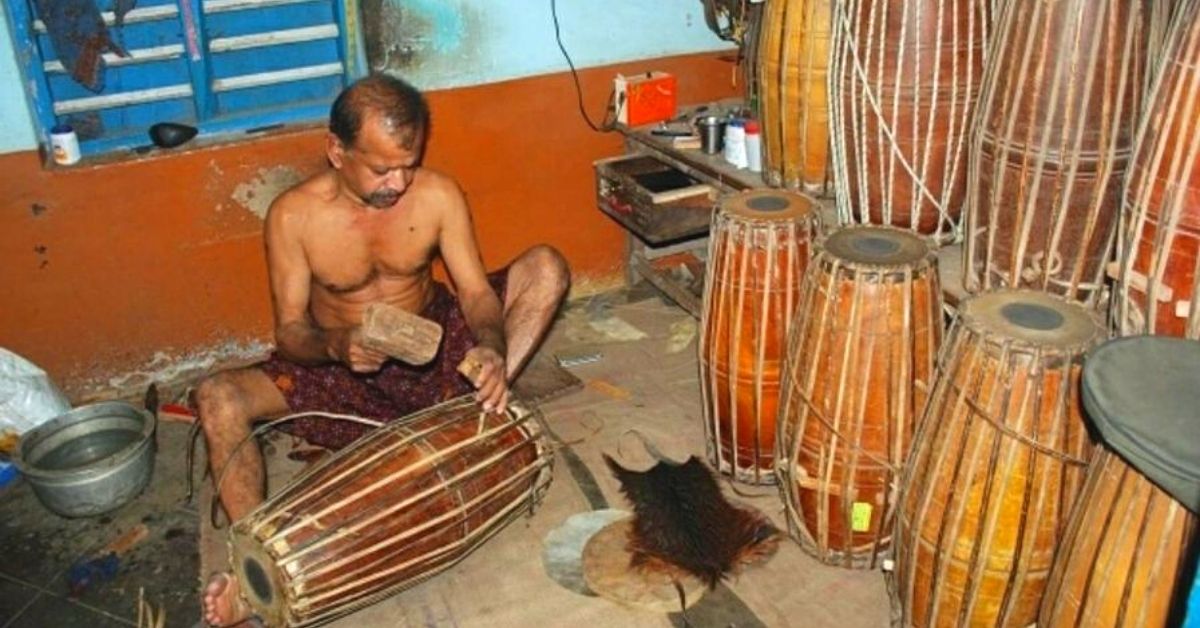
Dr. Kuzhalmannam Ramakrishnan from Kerala’s Palakkad district holds five Guinness World Records for his marathon performances, in which he plays the Mridangam, a Carnatic instrument, for the longest durations in the world. In one of his record holding events held in Coimbatore (2006), the maestro did a solo performance for 301 hours straight.
Among the many people he thanked for helping him reach this stage was a man called P R Kasumani, a native of Peruvemba village. He was the craftsman behind making the two-headed percussion instrument that proved to be Dr Ramakrishnan’s perfect companion for the evening.
“We have been sourcing mridangam from the Kasumani family since my grandfather’s days. Although the village is a culturally rich hub for instruments, our loyalties lie with the dextrous craftsmen,” Dr Ramakrishnan tells The Better India.
Kasumani is a third generation craftsman, taking forward his family’s hard-earned legacy of making and preserving instruments. His skills and focus on precision have made him one of the most sought after artists by maestros of Carnatic music, including Indian film actress and Bharat Natyam dancer Shobana, as well as late Carnatic music artiste Jaya Krishnan. Kasumani’s instruments are also sold in countries such as Canada, Malaysia, United States, Singapore, and Gulf countries.
Like Kasumani, there are several uniquely skilled craftsmen in Peruvemba who manufacture musical instruments like Mridangam, Maddalam, Tabla, Timila, Chenda, Idakka etc. However, over time, some families have moved over to other professions such as making charkhas and sari weaving, due to financial issues. Presently, there are 30 artisans actively engaged in the profession.
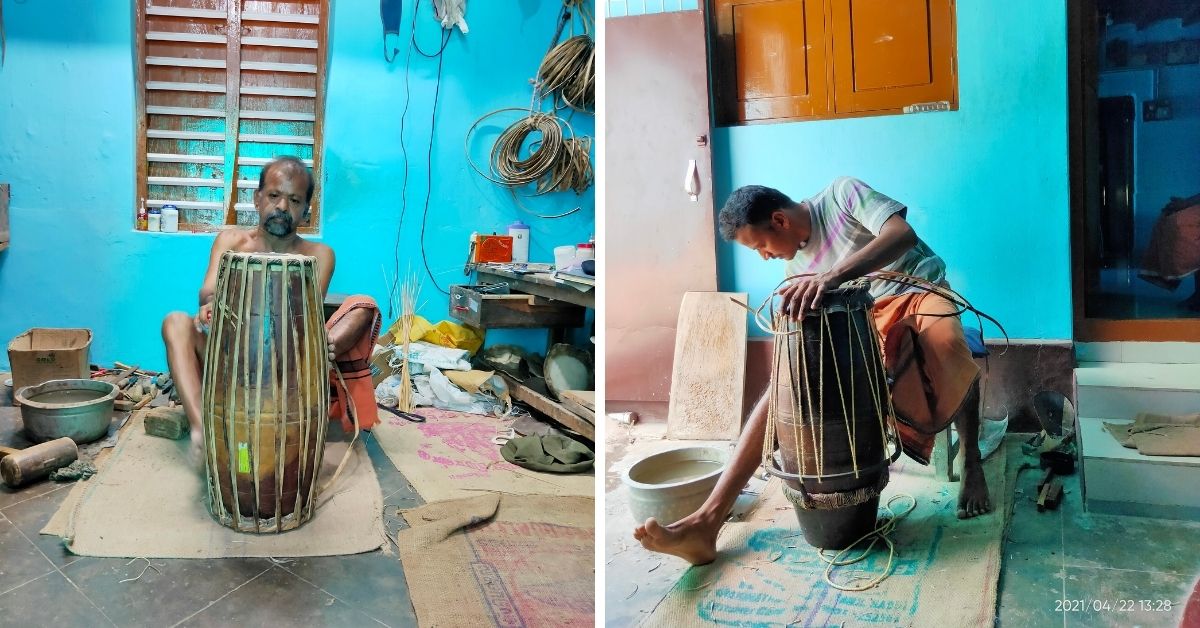
Kasumani’s son, Rajesh K, who is the fourth generation entrant in the profession, speaks with The Better India and gives a sneak peek into their well-preserved heritage, which is more than 200 years old. He shares what goes into each instrument piece and how the family has thrived over the years.
A meticulous process
Peruvamba is located only 15 kilometres from the noisy town of Palakkad, and upon entering the small village, you only see a different world. At any point in the day, you can hear someone humming along to classical ragas like Kambhoji, Hanumantodi, and Malahari, on freshly made mridangams.
The cumbersome and labour-intensive process of making every piece, which continues seamlessly and without glitches, takes anywhere between 2-3 months to complete. Generally, the artisans dedicate a part of their house to make the instruments. This is probably the reason why the entire family is involved in the work. Rajesh was around eight when he first tried his hands at making one.
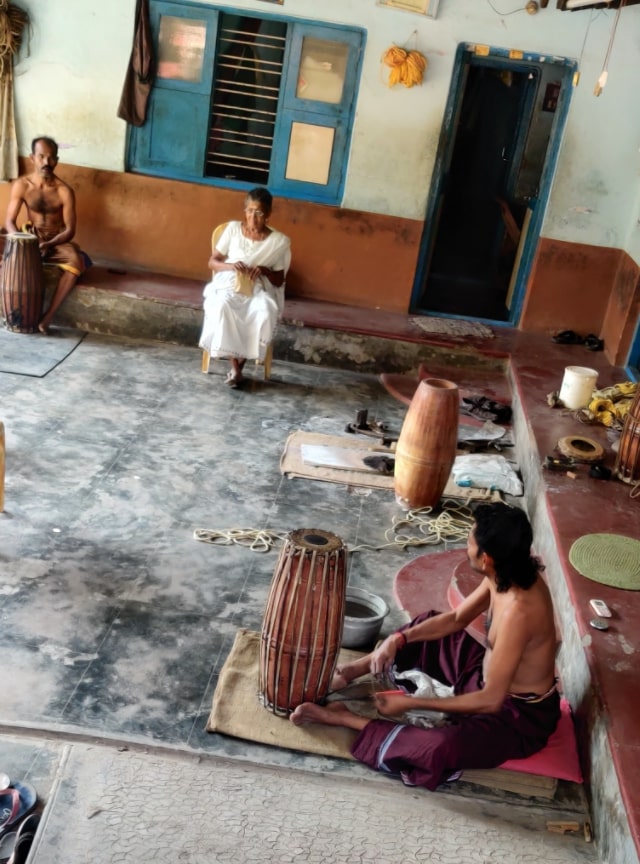
“For a school project, I had made a miniature mridangam, and cut my skin in the process. In fact, in the initial days, I’d cut myself often, till I grasped every step of the process. Every family member excels at certain tasks. For example, my grandmother aces mashiyidal, which is the black circular ring on top of the instrument made from boiled rice and black stone. Her work is especially in demand by customers. Likewise, my father perfects the shape,” says Rajesh.
The main materials to make the instrument are jackfruit and leather. The family sources their jackfruit from Tamil Nadu’s Panruti village and to ensure the sturdiness, the tree has to be at least 30 years old. The middle and lower body of the fruit is cut and kept for drying for nearly two months, and then chiselled to make the body.
“Earlier, we would shape the jackfruit by hand, but now we have a rotating machine that does the work in three hours. The leather is made of three skin layers and pinned on the top and bottom. The strings are fastened tightly on the sides, and while doing this, it is crucial to note if the struti (microtonal units) is in perfect order. It is an excruciating process which requires a lot of arm and leg strength. After this, we make mashiyidal by grinding the black stone or puranakkallu on a mortar and mixing the powder with boiled rice. It is applied to drumheads which create a resonating bass sound,” Kasumani explains.
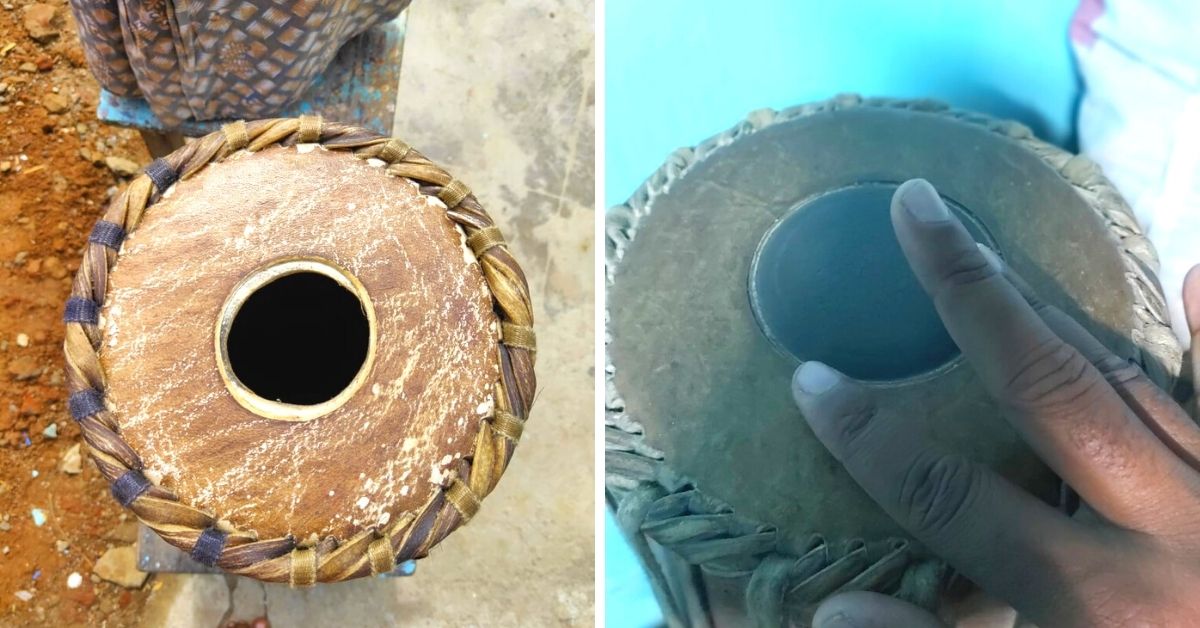
The family makes two types of mridangams — Ech, which is usually used by female musicians due to its high pitch, and Thag used by men. In Ech, straw is placed in between the leather layers, and for Thag, rust iron is used. The finished product weighs between 9-12 kilos and the price range is between Rs 15,000 and Rs 20,000, depending on the specifications of the customers.
The bespoke percussion instruments are made without any shortcuts and the dedication is reflected in the family’s policy of testing each instrument before selling it. Even though they make an average of 50 mridangams through the year, they don’t hesitate in discarding pieces if they find a defect. Many artisans sell the defective pieces at lower prices but for Kasumani and Rajesh, nothing is more important than quality. This principle is applied when customers come for their instruments to be repaired — they either replace the instrument altogether, or repair it for free.
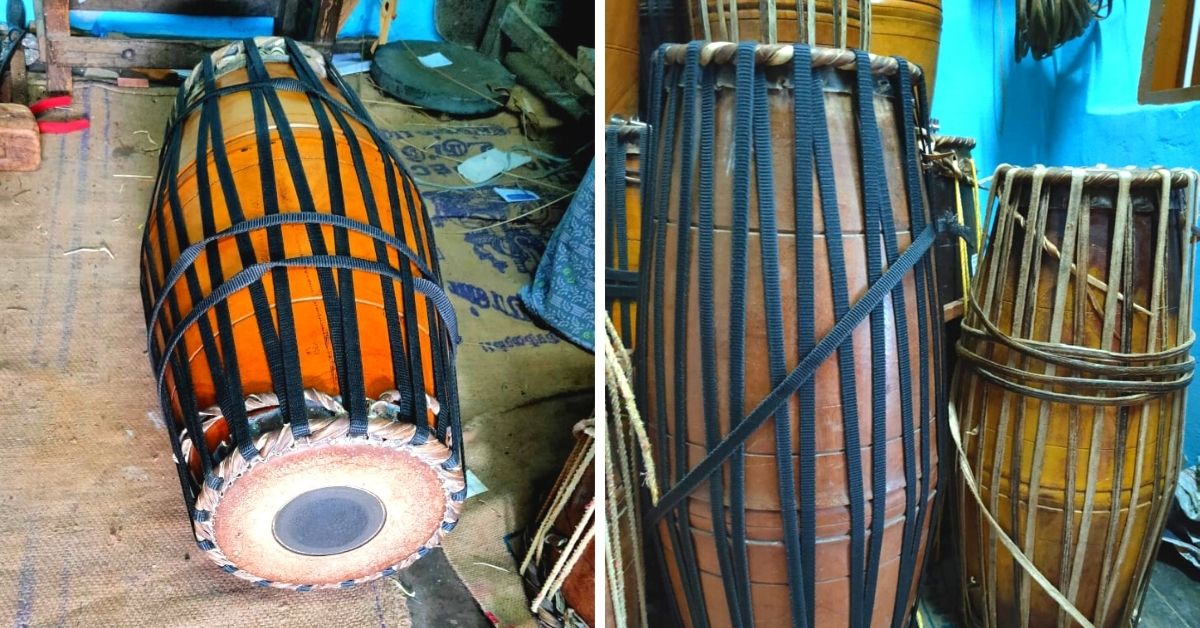
However, adherence to quality has its drawbacks, especially in a time like COVID-19, when the demand has dropped dramatically. They end up working more and earning less. The family either sells directly to customers who comprise musicians and music institutions or middlemen at fair price. In case of middlemen, Rajesh tells me that often, they increase the price and sell it under their brand name without giving any credit to the makers.
But by now, Rajesh has accepted the bitter truth. “Unlike in the old days, customers have specific demands with regards to design, tone, etc and we provide these, but they don’t want to pay extra for the extra work we do. Due to the pandemic, festival celebrations and social gatherings have reduced, so very few people are ordering from us. It is a difficult time for us.”
Even though Rajesh holds a degree in MA, he has chosen to be a part of Kasumani’s legacy and, despite the pandemic, he aims to continue the craft. While he does not have children, he hopes to pass on the learnings and skills to his nieces and nephews, giving them a choice to join the family tradition when they grow up.
“Mridangam is part of our identities now, I will part with it only when I die,” adds Rajesh.
You can reach Rajesh between 10 am and 7 pm at +91 77365 46452
Featured image source: Manikandan/Facebook
With inputs from Upasna Sudhir
Edited by Divya Sethu
This story made me
- 97
- 121
- 89
- 167
Tell Us More
We bring stories straight from the heart of India, to inspire millions and create a wave of impact. Our positive movement is growing bigger everyday, and we would love for you to join it.
Please contribute whatever you can, every little penny helps our team in bringing you more stories that support dreams and spread hope.






